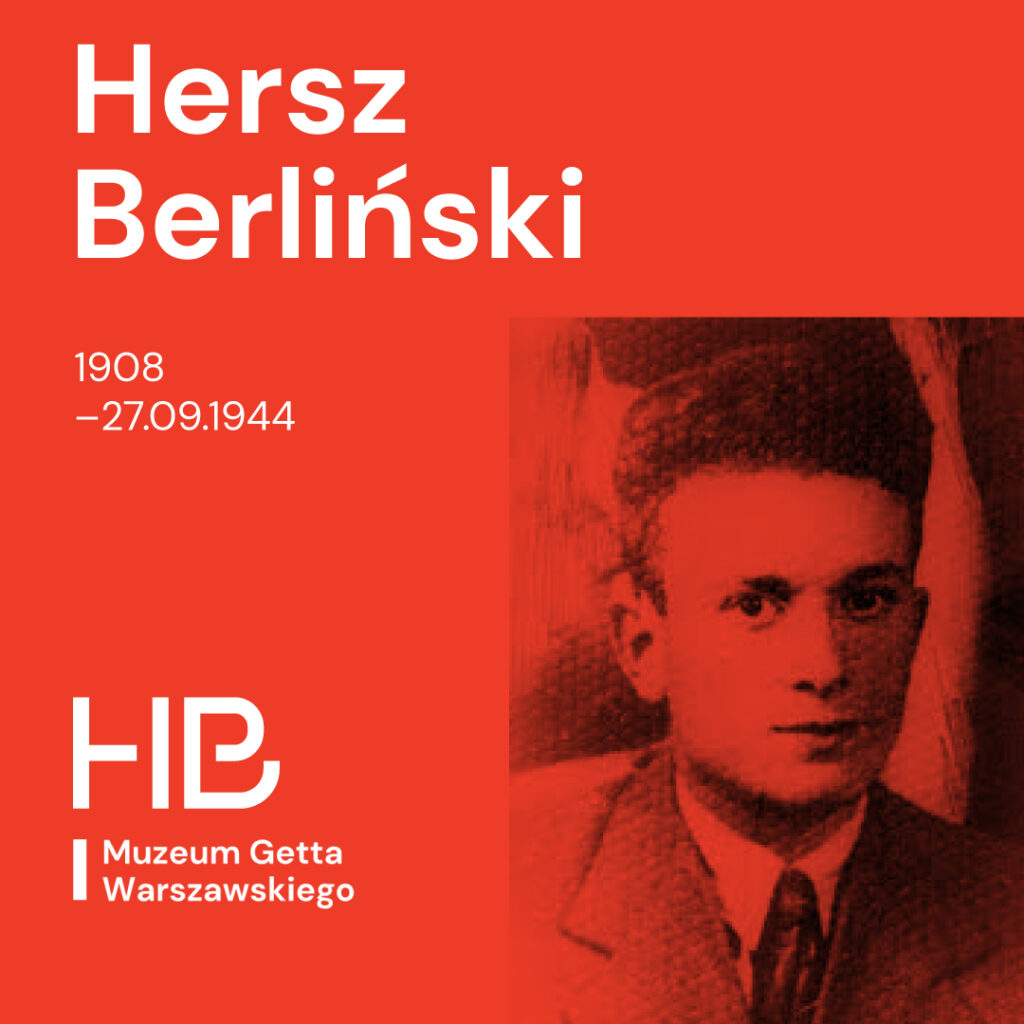Hersz Berliński (1908–27.09.1944)
activist of Poalej Syjon-Lewica and the resistance movement during World War II, member of the Jewish Combat Organization, participant in the Warsaw Ghetto Uprising and the Warsaw Uprising

He was born in 1908 into a working-class family in Łódź in Bałuty. His father had a weaving mill at ul. Pieprzowa 24. Hersz attended a cheder and then a state primary school. In 1923 he joined the Cukunft – the youth group of the Bund Party. A year later he moved to Poalej Syjon-Lewica, where he was active first in a youth organization and in the trade unions, and then became a militia commander of the party in Łódź. In the 1930s he worked in a textile factory, was a member of a workers’ committee and took part in the strikes of Łódź textile workers.
After the outbreak of the World War II he tried to get to Warsaw, but was arrested by the Germans and imprisoned first in Rawa Mazowiecka, then in Częstochowa, from where he managed to escape. He reached the Soviet occupation zone, then Warsaw, where he was in the ghetto from 1940. He became secretary of the party committee and head of the underground press of Poalej Syjon-Lewica. Together with four other party activists – Eliahu Erlich, Pola Elster, Hersz and Bluma Wasser – they were called “quintuplets”. He was a co-founder of Antifascism Block and the underground organization Młodzież Borochowa. After the so-called Wielka Akcja (Wielka Akcja) he became one of the most active members of the Jewish Combat Organization – he was appointed his party’s representative at the Main Headquarters, where he headed the planning department. He worked daily at the Landau factory.
During the Warsaw Ghetto Uprising he commanded the combat group Polaej Syjon-Lewica and fought in ul. Świętojerska, in the so-called brush shed, and then in the central ghetto. On May 10, 1943, he went to the so-called Aryan side through the sewers at ul. Prosta, together with about 30 fighters. From there he went to the forests of Wyszków, where he fought in the partisan unit “Defenders of the Ghetto”. He returned to Warsaw and hid with his comrades; then he wrote down his memoirs in Yiddish entitled “Three. Pola Elster Hersz Berliński, Eliahu Erlich”. During the Warsaw Uprising, he fought in the ŻOB detachment. Shelter in ul. Suwalska, where the “quintuplets” were hiding, was discovered by the Germans on September 26. Hersz Berliński was killed the next day during the fighting in Żoliborz, with a gun in his hand. On April 19, 1945, he was posthumously awarded the Order Virtuti Militari V Class, exhumed 10 days later and solemnly buried in the main avenue of the Jewish Cemetery at Okopowa Street (Section 38) next to Pola Elster and Eliach Erlich.

